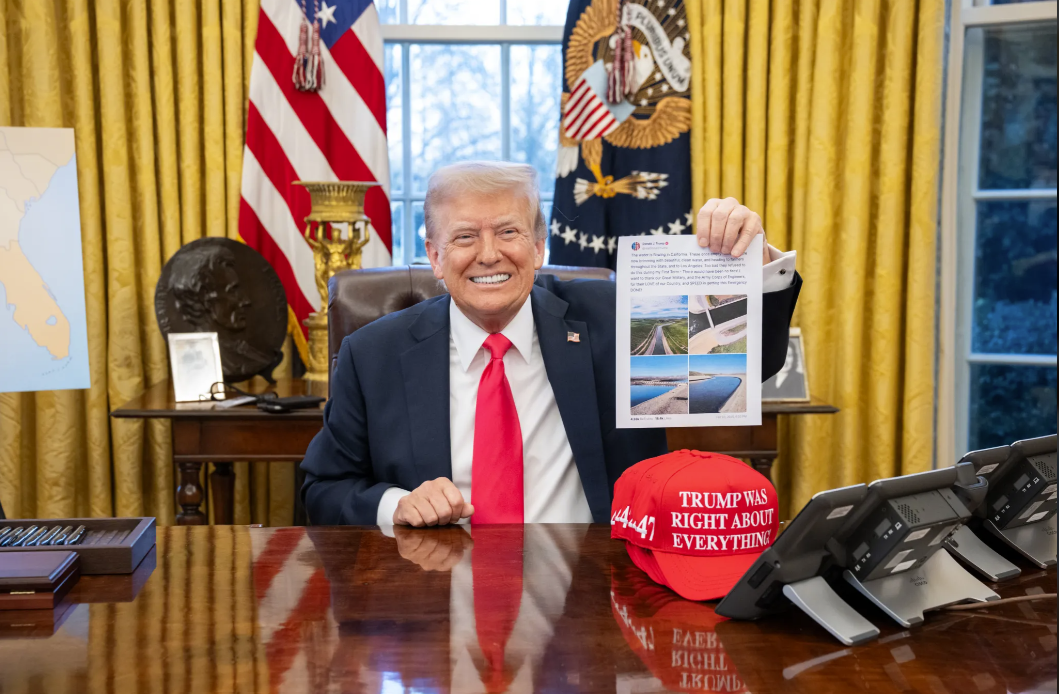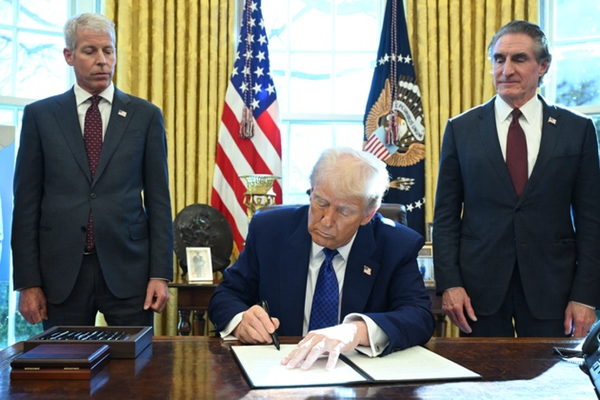Trump’s war on universities could set back U.S. energy innovation for decades
The Trump administration’s all-out assault on U.S. universities and research institutions is a warning for the world’s top scientists: You’re not welcome here.

Quitting Carbon is a 100% subscriber-funded publication. To support my work, please consider becoming a paid subscriber or making a one-time donation.
The Trump administration appears not to understand that its war against the nation’s universities is in conflict with its goal to “unleash American energy.”
America’s universities and the U.S. Department of Energy’s (DOE) national laboratories are the indispensable beating heart of the nation’s energy innovation ecosystem – even when homegrown clean energy technologies have been commercialized overseas.
Before January 20, 2025, if you were a bright young energy researcher almost anywhere in the world looking to earn a Ph.D., an elite U.S. university was likely your first choice.
No longer.
On Tuesday, Politico’s Nahal Toosi reported that the “Trump administration is weighing requiring all foreign students applying to study in the United States to undergo social media vetting.”
“In preparation for such required vetting, the administration is ordering U.S. Embassies and consular sections to pause scheduling new interviews for such student visa applicants,” she wrote.
Also on Tuesday, the Trump administration said it plans to cancel the remaining $100 million of federal government contracts with Harvard University.
Combine these moves with the administration’s previous ones to slash research grant funding to American universities and revoke student visas and it’s no surprise that the best and brightest international students are now looking to advance their careers elsewhere.
“One of the USA's superpowers has been the ability to attract the brightest from around the world to study here, many of whom then stay and add so much to our country. This new overt hostility to international students and universities in general is already destroying this remarkable advantage,” Jesse D. Jenkins, an assistant professor at Princeton University, wrote Tuesday on Bluesky.
One of the USA's superpowers has been the ability to attract the brightest from around the world to study here, many of whom then stay and add so much to our country. This new overt hostility to international students and universities in general is already destroying this remarkable advantage.
— Jesse D. Jenkins (@jessedjenkins.com) 2025-05-27T18:24:38.249Z
Jenkins, an energy systems engineer, leads Princeton’s ZERO Lab (Zero-carbon Energy systems Research and Optimization Laboratory).
He added: “In my department alone, we already lost at least one PhD admit & a senior faculty candidate this year because of it. They opted to stay abroad at high quality engineering schools. And this is just beginning. The impact on next year's cycle will be a lot worse.”
“We had over 800 applicants for graduate programs this year (PhD and MSE), a record, and we offered admissions to about 50 (almost all for PhD). About 30 end up enrolling, roughly 40% of which are international students,” he wrote.
No future in the government
The Trump administration hasn’t just yanked the welcome mat from America’s doorstep. It is also telling foreign – and American – early-career scientists there is no future for them in the federal government.
Among the thousands of probationary federal employees fired at the direction of the U.S. Office of Personnel Management early in the new administration (firings still being contested in federal courts), many were young researchers and scientists at the Departments of Energy and Interior with less than two years of service.
We will never know how many of the affected employees would have decided to spend their entire careers at federal agencies.
Earlier this month, 114 staff from both research and operations, including non-probationary employees with more than two years of service, were fired at the Energy Department’s flagship National Renewable Energy Laboratory (NREL).
“A NREL researcher told me that any feeling of ‘security and optimism is gone,’ and pointed to a breach of trust between employees and managers. ‘They have kept us in the dark and insisted things were better than they are,’ the researcher says. ‘It’s a huge loss in terms of talent and brainpower,’” wrote Mother Jones’ Henry Carnell.
So many of these talented employees have been fired, accepted buyouts, or applied for early retirement that the federal government may no longer have the capacity to advance the Trump administration’s energy policy priorities such as those outlined in the four executive orders Trump signed last Friday to “usher in a nuclear energy renaissance.”
“Executive Orders don’t build big infrastructure. Skilled labor, technical expertise, and innovative financing do. With DOE DOGEd and RIFed, and the Loan Program Office on a skeleton crew, this EO isn’t worth the paper it was printed on,” Senator Martin Heinrich, the top Democrat on the Senate Energy and Natural Resources Committee, wrote on Bluesky on Tuesday.
Executive Orders don’t build big infrastructure. Skilled labor, technical expertise, and innovative financing do. With DOE DOGEd and RIFed, and the Loan Program Office on a skeleton crew, this EO isn’t worth the paper it was printed on.
— Senator Martin Heinrich (@heinrich.senate.gov) 2025-05-27T20:48:04.081Z
Poaching America’s talent
America’s rivals surely cannot believe their good fortune. Canada, Australia, and the European Union, among others, have pounced, more than happy to welcome the world’s most talented researchers.
Canada launched a “Canada Leads” program in April to attract early-career biomedical researchers. Australia’s “Global Talent Attraction Program,” also launched in April, offers competitive salaries and relocation packages to scientists. European Commission President Ursula von der Leyen announced earlier this month the E.U. “would set up a ‘super grant’ program aimed at offering ‘a longer-term perspective to the very best’ in the field” and “that 500 million euros ($566 million) will be put forward in 2025-2027 ‘to make Europe a magnet for researchers,’” reported the Associated Press.
For decades, a driving force in America’s growth and prosperity has been that many foreign-born scientists end up making their homes – and launching companies – here. Forty-four percent of America’s billion-dollar startups were founded by people born outside the U.S., found Stanford University’s Venture Capital Initiative.
It’s taken just four months, but Donald Trump has done incalculable damage to the U.S.’ standing as the globe’s top destination for scientists. NREL hosts scientists from more than 70 countries. I worry many of them may now decide to continue their careers outside the U.S. And for that, America would be immeasurably poorer.




